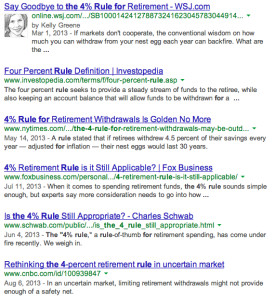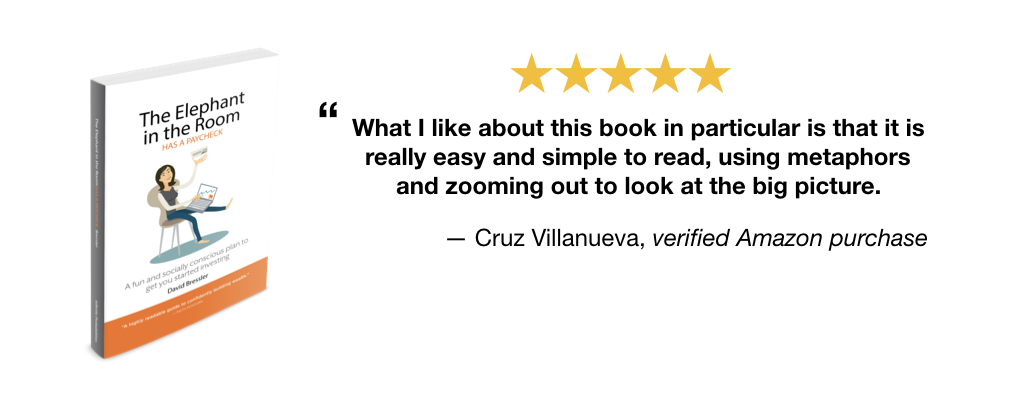Read any retirement planning guide, and at some point they’ll talk about converting a “pile of money” into a retirement income (often referred to as a ‘withdrawal rate’ or ‘the 4% rule’). This need to translate between two amounts is problematic for two reasons:
- It requires a lot of (big) assumptions ((That effectively make the whole thing one big guess.)), and
- It requires a lot deeper understanding of investing than most people have in order to make better assumptions.
With the Elephant’s Paycheck, no translation is required.
The focus on a paycheck, on income generated by investments directly becomes your retirement plan.
And, like your paycheck at work (or maybe better than your paycheck at work!) it has built in inflation protection with regular raises to simplify retirement spending planning.
Will You Outlive Your Money?
The common question, “will you outlive your money?” is not the only question you should be asking.
What will the quality of your retirement be if you’re constantly worried about spending too much, or not enough and later regretting missed opportunities?
In fact, the whole nature of retirement is changing and will likely include a more gradual reduction in work (and income) over a longer period of time as compared with today’s binary “I’m working / I’m not working” retirement lifestyle.
These questions along with these changes means you need to manage your income flow, and likely manage it for a much longer period of time that you expect. You want to make sure the income you (and your Elephant) are earning is greater than the amount you’d like to spend during “retirement” (while still maintaining a good quality of life during retirement). Even if you’re working part time, understanding your income rather than your net worth will help you make the best decisions on how to spend your time, how much part time work to take on, and so on.

The Fidelity article, Will You Outlive Your Money?, talks about the withdrawal rate.
Could the article be more complicated? Reading it, do you think you could understand how to manage your withdrawal rate over a long period of time? Remember, a mistake early on in retirement is irrecoverable, since it’s very difficult to go back to work once you realize the error. Do you really want the stress of worrying about all this during your retirement? Did you see that part about “skip raises”?
Oh, and the 4% rule again, great.
Why set yourself up to translate? Why not at least try to manage a retirement blueprint towards income so that you don’t need to totally base your retirement plan off of the withdrawal rate?
Tapping into “The Pile”
Of course, managing your income flow doesn’t mean you can’t withdraw principle (touch the pile of money you’ve accumulated). It just means that you have a safety net in that pile. If something should go wrong, unseen medical expenses or a downturn in the market, you can enhance your income flow by tapping into your principle. It’s a secondary thing, instead of your primary method for funding retirement. And, because your income and raises increase overtime, if you have a light touch on reducing your principle it won’t have as dramatic an impact as you might think.


Let me know what you think